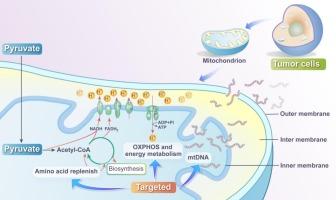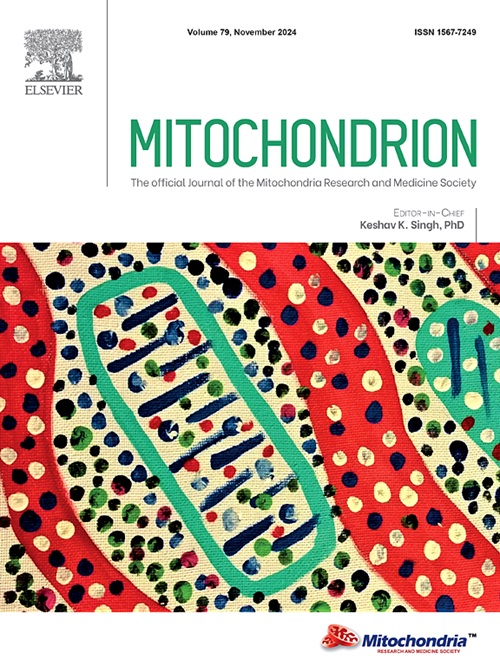靶向线粒体代谢抗肿瘤治疗
IF 4.5
3区 生物学
Q2 CELL BIOLOGY
引用次数: 0
摘要
由于发病率和死亡率不断上升,癌症已成为人们关注的焦点。然而,传统的治疗方式受到固有的限制,在实现最终根除癌症方面构成了持续的挑战。线粒体对细胞生长和生理稳态至关重要,与正常细胞相比,癌细胞中的线粒体表现出独特的结构和代谢变化。靶向肿瘤细胞中的异常线粒体代谢已成为一种很有前途的治疗策略,利用与靶向治疗方法相关的准确性、有效性和最小的副作用。然而,由于肿瘤细胞的复杂性,线粒体在肿瘤发生发展中的具体机制以及针对线粒体代谢的新型抗肿瘤药物仍需进一步研究。本文综述了肿瘤细胞中针对线粒体DNA、氧化磷酸化、线粒体能量代谢和氨基酸代谢的研究,阐明了靶向线粒体代谢的方法,并强调了未来研究开发靶向线粒体代谢治疗癌症的意义。本文章由计算机程序翻译,如有差异,请以英文原文为准。

Targeted mitochondrial metabolism for anti-tumor therapy
Cancer has become a focal point of concern owing to its escalating incidence and mortality rates. However, traditional treatment modalities are encumbered by inherent constraints, posing ongoing challenges in achieving definitive cancer eradication. Mitochondria, crucial for cellular growth and physiological homeostasis, manifest distinctive structural and metabolic alterations within cancerous cells compared to their normal counterparts. Targeting aberrant mitochondrial metabolism in tumor cells has emerged as a promising therapeutic strategy, capitalizing on the precision, efficacy, and minimal adverse effects associated with targeted therapeutic approaches. However, due to the complexity of tumor cells, the specific mechanism underlying the role of mitochondria in tumor development and new anti-tumor drugs targeting mitochondrial metabolism still need to be further studied. This review focuses on studies that target mitochondrial DNA, oxidative phosphorylation, mitochondrial energy metabolism, and amino acid metabolism in tumor cells, elucidating the methods involved in targeting mitochondrial metabolism and underscoring the significance of future studies in developing therapies targeting mitochondrial metabolism for cancer treatment.
求助全文
通过发布文献求助,成功后即可免费获取论文全文。
去求助
来源期刊

Mitochondrion
生物-细胞生物学
CiteScore
9.40
自引率
4.50%
发文量
86
审稿时长
13.6 weeks
期刊介绍:
Mitochondrion is a definitive, high profile, peer-reviewed international research journal. The scope of Mitochondrion is broad, reporting on basic science of mitochondria from all organisms and from basic research to pathology and clinical aspects of mitochondrial diseases. The journal welcomes original contributions from investigators working in diverse sub-disciplines such as evolution, biophysics, biochemistry, molecular and cell biology, genetics, pharmacology, toxicology, forensic science, programmed cell death, aging, cancer and clinical features of mitochondrial diseases.
 求助内容:
求助内容: 应助结果提醒方式:
应助结果提醒方式:


